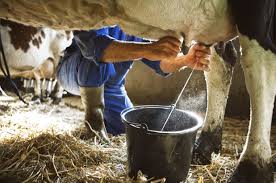For policy makers within the bureaucracy of government institutions, one of the most difficult challenges to consider is the shape and character of the public discourse in Nigeria. As things stand, the form and content of the national conversation is driven, not by the primacy of facts or the best intentions. Rather, partisan and sectarian ends, rabble rousing along the lines of ethnicity, religion and geo-political interests have become the dominant determinants of which side wins the argument. It is a cacophony reflecting the reality of a country dancing in the brink. In this kind of toxic conversational atmosphere, even the best solutions get killed on the rocky grounds of the nation’s coarse debating space. Someone who should know about the dangers of the situation painted above is none other than the helmsman of the Central Bank of Nigeria (CBN) Mr. Godwin Emefiele.
The CBN on Emefiele’s watch took a hard look at Nigeria’s foreign exchange challenge, and tinkered up yet another solution to further stem the hemorrhage. The antidote he came up with was to restrict foreign exchange for the importation of milk. The complex calculus shows that over $1billion is spent annually on importation of milk, whereas Nigeria has the capacity to harness its abundant resources in diary subsector to end the foolishness of basically outsourcing jobs to other countries. In Emefiele’s mind as a policy wonk he must have been waiting for the deafening applause that would come his way for his good intentioned engineering of the trade system. Likely to his shock however, the move has been greeted by angry public reactions driven by the emotions of ethnicity, and extreme paranoia. In fact the industry of ethnic fear mongering is in overdrive, characterizing a policy with massive jobs potentials as a ploy by the Buhari administration to reintroduce the suspended Rural Grazing Areas (RUGA) through the back door.
Consequently, the content of the character of the conversation has equally degenerated so much that the CBN’s efforts to float a fund that would allow interested investors access cheap loans to set up ranches, is equally being rejected. Therefore, if those who should be thinking of how to take advantage of the massive window of business opportunities to be opened up from this intervention are viewing it with suspicious lenses, and are therefore running the risk of losing out of the coming largesse. Nonetheless, it is compelling to argue that the climate of fear, and the implacable stance of the horde of suspicious naysayers against the CBN’s restriction of foreign exchange for milk importation, are basically reacting to the terrible management of the herdsmen killings, which have ravaged several parts of the country.
Many citizens on the receiving end of herdsmen impunity argue that President Buhari through some unhealthy dose of inertia has presented himself as a lame duck with respect to dealing decisively with herdsmen terrorism. Others point to more ominous statements from the Presidency, which admonished that it was better to live than die over land being sought from grazing by herdsmen. If the President has been wanting in the area of taking action, he has fared worse even in the province of words. Till date, there has been neither a direct, nor a firm message to the herdsmen that there would be consequences for their disturbing campaign of endless killings. The heart rending stories of willful destruction of farmlands, kidnapping, rape of women, and the outright wiping out of whole communities by hordes of herdsmen marauders have left the country dancing on the bring. In response to these ravages, separatists, irredentists and ethnic champions have had a field day framing the mindless violence, and the pathetic response of the state to it as a clear manifestation of a Fulani agenda for territorial expansion. President Olusegun Obasanjo, never one to watch from the sidelines, joined the fray and the result is that Fulanisation has now become part of Nigeria dark lexicon reflecting the failure of the state to perform its basic function of guaranteeing the safety of life and limb.
This is the background against which Emefiele’s well-intentioned policy of restriction of forex of milk importation is being pilloried by the mob of aggrieved naysayers. In this many years as a technocrat in the banking sector, the CBN Governor must have been used to his training as a monetary and fiscal policy expert. With the deafening cries of protest greeting his latest well-intentioned move, he would have to muster some communication skills or perhaps get interpreters to render the essence of his policy in Nigeria’s hundreds of local languages. The idea will be to break things down to the fundamentals by showing that the policy is not about the rejected RUGA. And that neither is the financing meant exclusively for Fulani people.
Any Nigerian from Epe in Lagos through Enugu in the South East to Potiskum in the North East are more than qualified to come forward and be a part of the value chain for domestic milk production and ranching business. In all, the uproar of the restriction of forex for milk import is a manifestation of the clear and present danger the nation faces. The national space is increasingly being fouled up. And there lies an urgent task for actions and interventions, which will bring in the rhetoric of unity in diversity. A starting point would be to decisively end impunities like the herdsmen problem, and hold to account all perpetrators of such terror. This is the only way to calm frayed nerves; otherwise, laudable intentions, which would benefit citizens would continually be damaged by the evil of ethnic and sectarian strife.























